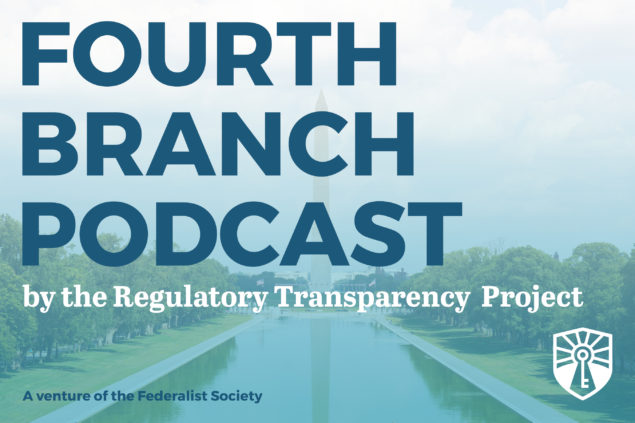Neil Chilson
Senior Research Fellow
Center for Growth and Opportunity

Neil Chilson
Senior Research Fellow
Center for Growth and Opportunity
Neil Chilson is a Senior Research Fellow at the Center for Growth and Opportunity. Chilson is a lawyer, computer scientist, and author of the book “Getting Out of Control: Emergent Leadership in a Complex World.”
Chilson was previously the senior research fellow for Technology and Innovation at Stand Together, where he guided efforts to understand and promote the legal and cultural paradigms that best enable people to discover, innovate, and improve all our lives.
Before Stand Together, Chilson was the Chief Technologist at the Federal Trade Commission, where he focused on the economics of privacy and blockchain-related issues. Previously, he was an attorney advisor to Acting FTC Chairman Maureen K. Ohlhausen. In both roles he advised Chairman Ohlhausen and worked with staff on nearly every major technology-related case, report, workshop, or other FTC proceeding since January 2014. Neil joined the FTC from telecom firm Wilkinson Barker Knauer. Neil is frequently quoted by the press and his work has appeared in numerous news outlets, including The Wall Street Journal, The Washington Post, USAToday, and Newsweek. Neil has a J.D. from The George Washington Law School, a M.S. in computer science from University of Illinois, Urbana-Champaign, and a B.S. in computer science from Harding University.

A person listed as a contributor has spoken or otherwise participated in Regulatory Transparency Project events, publications, or multimedia presentations. A person's appearance on the website does not imply an endorsement or relationship between the person and the Regulatory Transparency Project. The Regulatory Transparency Project takes no position on particular legal or public policy issues. All expressions of opinion by a contributor are those of the contributor.
Contributions
New Legal Analysis: Regulatory Implications of Turning Internet Platforms Into Common Carriers
Neil Chilson
The content moderation policies of major internet platforms like Facebook and X (formerly Twitter) have faced escalating criticism in recent years. Many conservatives now argue that because these platforms exhibit political bias and routinely censor right-leaning political views and news stories, some sort of government regulation is required. Standing in the way, however, is the First Amendment.
Read this articleThe Problem with AI Licensing & an “FDA for Algorithms”
Neil Chilson and Adam Thierer
Last year, we released a study for the Federalist Society predicting “The Coming Onslaught of ‘Algorithmic Fairness’ Regulations.” That onslaught has now arrived. Interest in artificial intelligence (AI) and its regulation has exploded at all levels of government, and now some policymakers are floating the idea of licensing powerful AI systems and perhaps creating a new “FDA for algorithms,” complete with a pre-market approval regime for new AI applications. Other proposals are on the table, including transparency mandates requiring government-approved AI impact statements or audits, “nutrition labels” for algorithmic applications, expanded liability for AI developers, and perhaps even a new global regulatory body to oversee AI development.
Read this articleTech Roundup Episode 18 – The Future of AI Regulation: Examining Risks and Rewards
In this Tech Roundup episode, we delve into the discussions raised by the U.S. Senate Judiciary Committee’s recent hearing on AI regulation.
Listen to this podcastExplainer Episode 50 – FTC on Privacy: The Statutory Authority Behind the Plan
Last November, the Federal Trade Commission accepted comments on its proposal to start a rulemaking related to “Commercial Surveillance” – the agency’s newly minted term for any and all business use of data about customers.
Listen to this podcastDeep Dive Episode 163 – Shapers of Cyber Speech: Silicon Valley and American Discourse
Experts debate the pros and cons of regulatory proposals aimed at curbing social media content moderation.
Listen to this podcastShapers of Cyber Speech – Silicon Valley and American Discourse
What are the realistic regulatory options for curbing Silicon Valley’s influence on the national discourse? What are the potential downsides of these options?
Watch this videoThe DOJ’s Weak Case Against Google
Neil Chilson
Governing the Internet: Antitrust enforcement can ensure competitive markets that benefit consumers. But politicized antitrust benefits a few companies and politicians at the expense of everyone else.
Read this articleExplainer Episode 16 – An Update on Antitrust and Big Tech
Neil Chilson breaks down the recent developments with antitrust and big tech and discusses how they fit into the broader picture of antitrust law in the United States.
Listen to this podcastThe Price of Privacy: A Debate over Corporate Surveillance
Data is being collected on each of us every day by the apps that we use, the websites that we visit, and the services we subscribe to. How is this data used by companies and organizations? What is the difference between data security and data privacy? Where should the balance be struck between privacy and the benefits of increased data collection? This video will discuss these questions and more.
Watch this videoFCC’s O’Rielly on First Amendment & Fairness Doctrine Dangers
Neil Chilson and Adam Thierer
Governing the Internet: Plenty of people claim to favor freedom of expression, but increasingly the First Amendment has more fair-weather friends than die-hard defenders.
Read this articleDeep Dive Episode 117 – How to Approach Data Collection and Breaches in the Age of COVID-19
What are the data privacy and security implications for widespread data collection for COVID-19 contact tracing? Drew Bagley, Neil Chilson, and Roger Klein discuss.
Listen to this podcastTech Roundup Episode 10 – Trump’s Executive Order on Online Censorship
What is the legislative and legal background of the recent Executive Order on Preventing Online Censorship, how will it affect Section 230 of the Communications Decency Act, and what may be the unforeseen consequences of this move? These and other questions are addressed in this episode.
Listen to this podcastDeep Dive Episode 109 – Regulating by Consent Agreement: Examining FTC’s YouTube Settlement and Beyond
This episode explores FTC settlements and consent decrees, including the YouTube case and what it means for FTC enforcement going forward.
Listen to this podcastDeep Dive Episode 106 – Should Big Tech Platforms Be Viewpoint Neutral? Should the Government Care?
On March 4, 2020, the Regulatory Transparency Project sponsored a symposium with the University of Pennsylvania Federalist Society student chapter. This episode features audio from the second panel.
Listen to this podcastRegulating Big Tech: Should Social Media Platforms Be Viewpoint Neutral? Should the Government Care?
On March 4, 2020, the Regulatory Transparency Project sponsored a symposium with the University of Pennsylvania Federalist Society student chapter. The second panel of the symposium was titled “Should Social Media Platforms Be Viewpoint Neutral? Should the Government Care?”
Watch this videoExplainer Episode 11 – GDPR Compliance and Cybersecurity Concerns
In this episode, Ashley Baker and Neil Chilson discuss the implications for data security under recently-enacted privacy laws.
Listen to this podcastDeep Dive Episode 46 – Big Tech, Competition, and Antitrust Enforcement
Neil Chilson and Charlotte Slaiman discuss the debate over governmental oversight of big tech companies and the proper role of the federal government in promoting consumer welfare and market competition.
Listen to this podcastReboot 2018: Are We Headed for a U.S. General Data Protection Regulation (GDPR)?
With continued scrutiny over social media companies’ data practices, states are stepping in to pass aggressive new privacy laws. For instance, the recently enacted California Consumer Privacy Act of 2018 will be the toughest data privacy law in the nation when it goes into effect in 2020. But with fears over navigating a patchwork of inconsistent laws, tech companies are increasingly interested in a federal privacy bill that will preempt the states. What might this look like, how likely is it to happen in the next Congress, and what will it mean for consumers?
The Regulatory Transparency Project co-sponsored the Lincoln Network’s Reboot 2018 conference.
Watch this video















